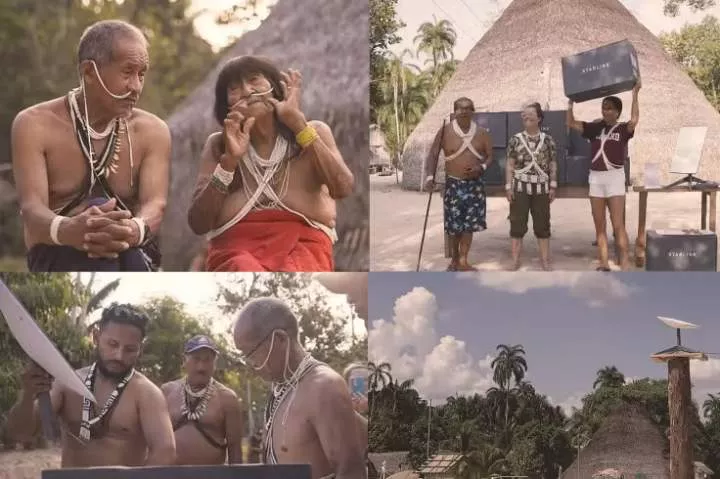![Marubo tribe are now addicted to pornography [Times] Marubo tribe are now addicted to pornography [Times]](https://static.netnaija.com/i/wPKL0yQdKVB.webp)
What happens when you give a remote Brazilian tribe access to the internet?
Elon Musk's Starlink satellite initiative gave the Marubo tribe in Brazil access to high-speed internet, but since then, they have struggled with social media addiction and pornography.
The Marubo people were removed from civilisation for hundreds of years and lived in small huts scattered along the Itui River in Brazil until recently.
The 2,000-person community was given internet access to be able to stay in touch with friends and family and ask for assistance in emergencies, but they are using it for other purposes. People are becoming more lazy and spending hours reading through social media. That sounds a bit too familiar.
There has been an increase in overt sexual behaviour. Kissing in public was unheard of before they saw the wonders of the internet and pornography.
Some well-known members of the tribe have reported seeing more aggressive sexual behaviour from young males, and young men are exchanging graphic recordings in group chats.
The effects of social media on the tribe have been interesting. The tribe's way of life has drastically changed as a result of the internet and customs like planting, fishing, and hunting are becoming less common.
Members of the tribe have stopped talking to their families and have distanced themselves from in-person social interactions.

TamaSay Marubo, the first woman to hold a leadership position in the tribe thinks social media is to blame for the youth's disregard for their duties in favour of spending endless hours on phones.
Some older tribe members have worries that the customs of the group may disappear with malicious gossip spreading on group chats is destroying the tribe's social cohesion.
They plan to reduce their access to the internet to only seven hours a day with unlimited access only on Sunday, but their behaviour makes us wonder about the effect social media and the internet has had on our brains in modern times.

















Comments